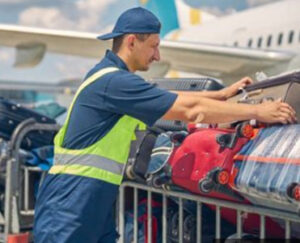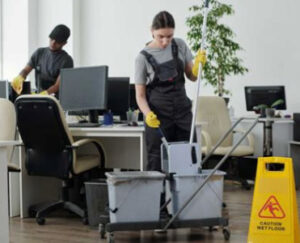When Covid caused the Great Travel Hiatus of 2020 and 2021, so many things that we travelers had taken for granted were changed. Now, nearly two years into this, things are a little slower and a little less pleasant.
 Why? Supply chain issues are of course a concern. But among this and other contributors to the issue, a big reason is because the service people that we’ve relied on all these years are fewer in number.
Why? Supply chain issues are of course a concern. But among this and other contributors to the issue, a big reason is because the service people that we’ve relied on all these years are fewer in number.
Who do I mean by service people?
- In hotels, they are the people who help you check in at the reception desk, carry your bags up to your room, keep your room clean and supplied with coffee, and help you with the odd this-and-thats at the concierge desk.
- In restaurants, they are the people who get you to a table, take your orders, clear the table, wash the dishes, and process your payment.
- In stores they are the cashiers and the stockroom folks.
- In airports, they are the people who keep things clean, handle the massive network of baggage handling, and work in the many small restaurants and stores.
- On the roads, they are the ride-share drivers and the delivery people.
 Think about a single business trip: how many of these service people help make your trip smooth? Now extrapolate this across all the many other businesses we use: the gas stations, convenience stores, shipping businesses, dog groomers, and clothing shops. Think about all the people doing lower-wage service jobs who make our lives a little easier every day, often behind the scenes.
Think about a single business trip: how many of these service people help make your trip smooth? Now extrapolate this across all the many other businesses we use: the gas stations, convenience stores, shipping businesses, dog groomers, and clothing shops. Think about all the people doing lower-wage service jobs who make our lives a little easier every day, often behind the scenes.
These are the folks I am talking about here. And many of them have gone away.
There are many possible reasons for this, but that’s not what I am writing about. If you want to go down that path, choose your favorite news outlet to read their theories and watch their pundits argue about it.
No, instead of exploring why, the reason I am writing this is to point out why you should care. To many middle-class and white-collar Americans who have no doubt heard about the shortage of service workers in the news, it only barely registers as something worth their notice. We like that guy at our favorite restaurant and make sure to tip our servers, but that’s as far as our connection to these people goes.
 I include myself in that group of Americans who definitely care, but, until recently, didn’t stop to really think about the service worker’s plight. It shames me to say that.
I include myself in that group of Americans who definitely care, but, until recently, didn’t stop to really think about the service worker’s plight. It shames me to say that.
But listen: this has a big impact on those of us who travel or who plan events for a living.
We have depended on these service people for all these years, and now that they are gone, it has a very big impact. For example, some hotels have cut back on which meals they serve in their restaurants (if not closing their restaurants altogether), and some have stopped providing room service.
My recent trip was noticeably marred by the gaping holes that we have in the “service industry” now. I don’t know if this services shortage is a worldwide thing or if this is just in the US, but it’s very noticeably bad.
 I don’t know to what extent my lost bag was due to fewer employees handling bags behind the scenes at the airports. On the customer-facing side, the guy I talked with at the STL airport said that most of the time he was the only person there to handle baggage issues for that entire concourse. (He also said that people should NEVER check their bag online: that doing so increases the chances of a lost bag! But I digress…)
I don’t know to what extent my lost bag was due to fewer employees handling bags behind the scenes at the airports. On the customer-facing side, the guy I talked with at the STL airport said that most of the time he was the only person there to handle baggage issues for that entire concourse. (He also said that people should NEVER check their bag online: that doing so increases the chances of a lost bag! But I digress…)
Restaurants have fewer servers, so service is so much slower. It wasn’t too horrible, but it seemed consistent across all the restaurants I went to: I’d see a restaurant full of customers and a single server covering the whole room.
Hotels have fewer cleaners, and so are less able to accommodate special requests (like early check-ins). A person I was traveling with tells me she was surprised when she returned to her room the second day and no cleaning had taken place. She asked at the front desk and they told her that the rooms were now cleaned only every four days.
 Some hotels have shut down room service, and some have even completely closed their restaurants. My stay in St. Louis at a Hilton with their restaurant closed was frankly horrible. They referred their customers to go to the restaurant at another hotel a block away (as it was the closest restaurant). I did that on the first day, but the next day they had to close their restaurant due to lack of staff.
Some hotels have shut down room service, and some have even completely closed their restaurants. My stay in St. Louis at a Hilton with their restaurant closed was frankly horrible. They referred their customers to go to the restaurant at another hotel a block away (as it was the closest restaurant). I did that on the first day, but the next day they had to close their restaurant due to lack of staff.
All of this is to say that this shortage of service workers really did a great job of demonstrating how impactful their presence and expertise is. Are they appreciated enough? Are they paid enough? I’m not sure.
A parting thought: The few service people who are still at work are now over-worked and stressed out. I’ve adjusted my usual “20% is the starting-point tip” attitude up to 30% and even higher.
Again, I wrote this just after the height of the pandemic, when travel was just barely starting back up but there was still a drastic shortage of service workers. This US Bureau of Labor Statistics article discusses the shortage, but of course there are more nuances than that.